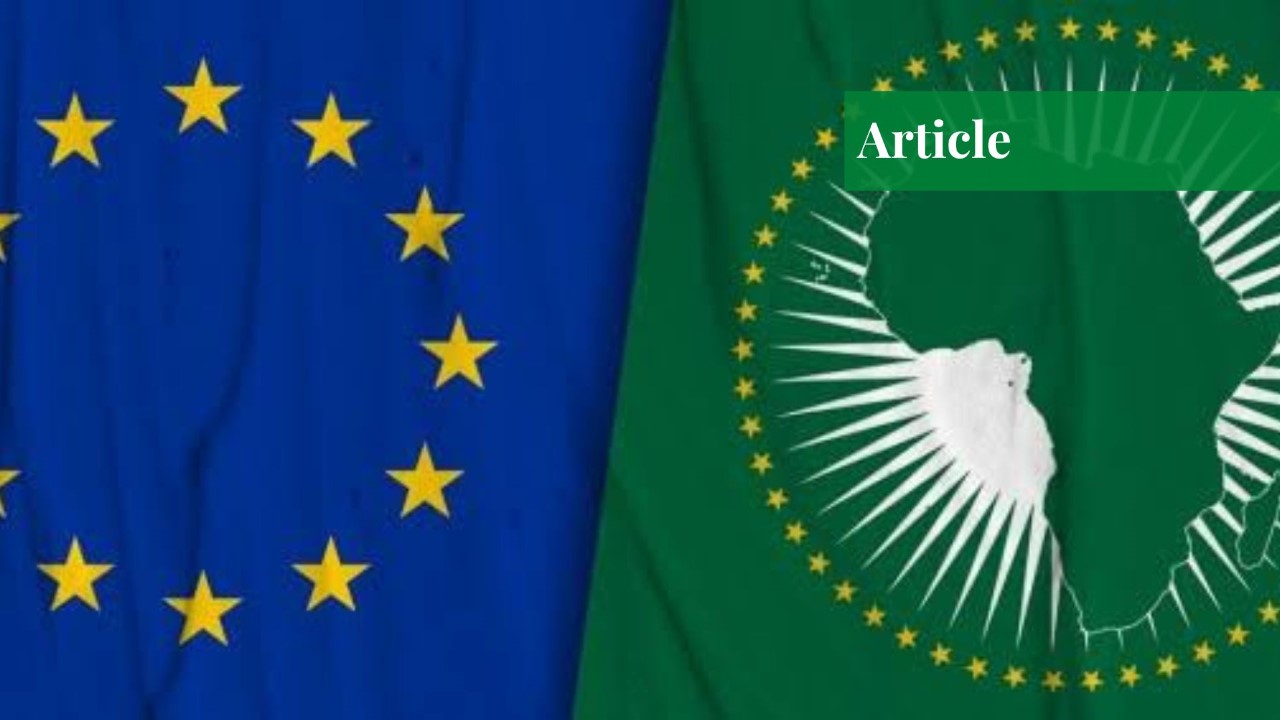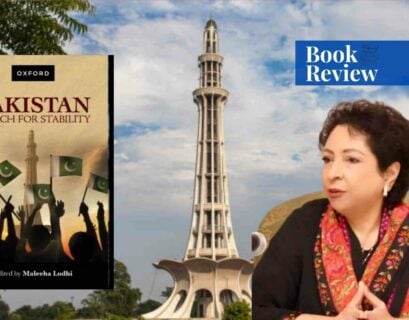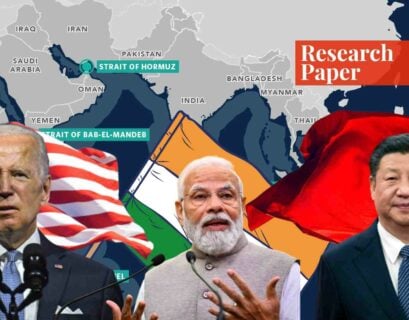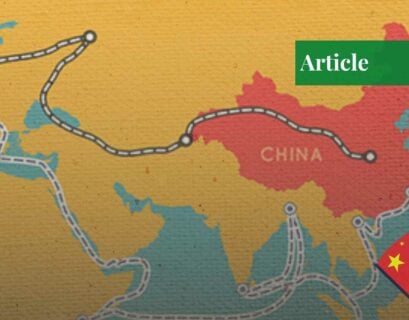Ms Zunaira Malik is studying international relations at Kinnaird College for Women University Lahore.
Introduction
For over forty years now, from the Yaoundé Convention in 1963 to the Lomé agreement in 1975 and the present Cotonou Agreement, the European Union (EU) has maintained close economic ties with Africa. It’s the colonial past coupled with geography, the quest for freedom, equality, solidarity and respect for human rights that bound these two regions together.
“This is what the essence of a good partnership and a good friendship is: you build on a solid foundation with common projects you can work on. But you’re able to mark very clearly where differences are, trying to convince each other and to move forward together.” Ursula von der Leyen, European Commission President
The relations between Europe and sub-Saharan Africa seem to cover almost the full spectrum of possible definitions of inter-regionalism. Africa is a continent with its own very distinct history and culture. The comparative analysis of geographical parameters of both of these regions reveals that Africa is 3-times larger than Europe and it is the home to thousands of ethnic groups and languages (approximately 3000 languages and ethnicities).
Interregionalsim & Its Types
Since interregionalism is still a relatively new area of study in the discourse of international relations theory, no single definition has been accepted by a large number of scholars. Roloff defined inter-regionalism as the process of broadening and deepening political, economic and societal interactions, while Fogarty took a more economy-oriented track to define inter-regionalism as ‘the pursuit of formalized intergovernmental relations with respect to commercial relationships across distinct regions.
Leadership means that the senior region (usually a regional organization) takes most of the responsibility for establishing the goals, monitoring the course, and supporting the instruments required by the junior region (not always an organization) to carry out the undertakings agreed upon.
The power balance between the EU and Africa is by all accounts unequal, with the EU’s say in global matters exceeding Africa’s. Even when it comes to the setting of priority areas of relations, it is the EU that takes the lead.
Quasi Interregionalism
Quasi-interregional relations are between an international organization or regional group and a third state. There are a number of examples of this specific interregional pattern in EU-sub-Saharan African relations. Since 1999, these relations have been regulated by a Trade, Development and Cooperation Agreement (TDCA), which includes a free trade area. Another example of quasi-inter regionalism is the security cooperation between France and the Economic Community of West African States (ECOWAS).
Pure Interregionalism
It refers to relations between the members of two consolidated regional organizations. In the last fifteen years, the creation of the African Union (AU) produced an increasing interaction with the EU, which has been modeled on a comprehensive continent-to-continent dialogue. Other forms of pure inter-regionalism can be found in the EU’s relations with ECOWAS, SADC and EAC.
History of EU-African Interregionalism
Relations between the European Union and Africa date back many decades through the Treaty of Rome, the Yaoundé́ Convention, and the Lomé́ conventions (1975, 1979, 1984 and 1989). The treaty of Rome signed in 1957 was meant to formalize the links with former current African colonies with a number of provisions, permitting the exchange of custom unions to the European Economic Community.
The twin principles of trade and aid were established to provide a legal basis for the European engagement with Africans. It was criticized by Pan Africanists on account of article 131 which meant for the continuation of colonial dependency. After that, the Yaoundé Convention was signed on July 20 1963 in Cameroon between the European Economic Community (EEC) and the Associated African States and Madagascar (AASM). This convention satisfied the desire of Europeans to keep their access to the natural resources of Africa intact.
It was in 1975 in Tongo that the Lomé Convention was concluded between the EEC and a group of African states which proved to be a watershed event that restructured the relations of African states with the European community. Although the Lomé convention failed to overcome the asymmetrical trading relationship between the EU and Africa, it laid a commitment for equal partnership.
The Cotonou partnership agreement was signed on 23 June 2000, representing a radical paradigm shift in relations between the EU and ACP states. CPA II, signed in 2005, introduced key areas of consideration: security (relating against terrorism and mercenary activities), political dialogue (relating to pragmatism and procedural edibility in terms of the persons able to participate in dialogue), and transparency.
It was during the second EU-Africa summit meeting in 2007 in Lisbon that 80 African and European heads of state adopted the Joint Africa-EU Strategy (JAES). Generally, its aim is to strengthen and promote economic cooperation, sustainable development, prosperity, peace and security, democracy and solidarity between and within both continents.
The JAES is a constantly evolving set of institutional arrangements. A joint commission for drafting a comprehensive African strategy was established in 2020 in the European Commission. These proposals build on the growing momentum in EU-Africa relations. The historical assessment of inter-regional partnerships reveals that these two regions share some common values and interests.
Economic Partnerships
The EU-African interregionalism is four-tier in nature. The common interests of maintaining peace/security, regulation of migration, and fixation of environmental problems with sustentation of institutional ties are the factors that bond these two regions together. The establishment of strong multilateral institutions that could promote interdependence is also one of the priorities and objectives of their relations.
Being the greatest economic partner, with trade reaching 235 billion Euros in 2018, the EU accounts for 32% of the total African trade but these economic relations are asymmetric in nature. With the Cotonou Agreement of 2000 and, in particular, the Joint Africa-EU Strategy of 2007, a change in EU-Africa relations gradually began to take place.
China is heavily investing in Africa by entangling the region in a win-win situation which is a setback to the EU policy. The racist attitude of European firms coupled with xenophobia that exists in Europe for African immigrants is making Africans skeptical of Europeans. New initiatives such as the African Union’s Agenda 2063 or the African Continental Free Trade Area (ACFTA) speak of the EU’s intention to keep its economic engagement intact.
The Security Dimension of Interregionalism
It’s the colonial past of Africa with the European region that shapes the political orientation of the African region towards the EU as a bilateral security partner. At the Lisbon Summit, a capstone doctrine of security relations was signed known as the ‘Joint Africa‐European Union Strategy and its outcome was the EU-AU Memorandum of Understanding on PSG.
A number of initiatives have also been taken such as the AU-led Silencing the Guns initiative, the African Peace and Security Architecture (APSA), the Common Security and Defense Policy (CSDP) missions as well as other security and defense deployments by the EU Member States also make a tangible contribution to the security partnership in the region, particularly in the areas of the Sahel, the Horn of Africa, the Gulf of Guinea, the Lake Chad Basin and the Central African Republic.
Not only in the spheres of political governance and democratic reforms but the EU-Africa partnership is also committed to the success of the Women, Peace and Security agenda by means of a collaborative initiative with the UNHRC and UNW. In this drive to implement and achieve gender equality and peace and justice, strong institutions, as well as interventions against sexual violence experienced by women, are being carried out by the EU-AU efforts in the form of the African Regional Support Program for the Elimination of Sexual Violence.
If you want to submit your articles and/or research papers, please check the Submissions page.
The views and opinions expressed in this article/paper are the author’s own and do not necessarily reflect the editorial position of Paradigm Shift.



















